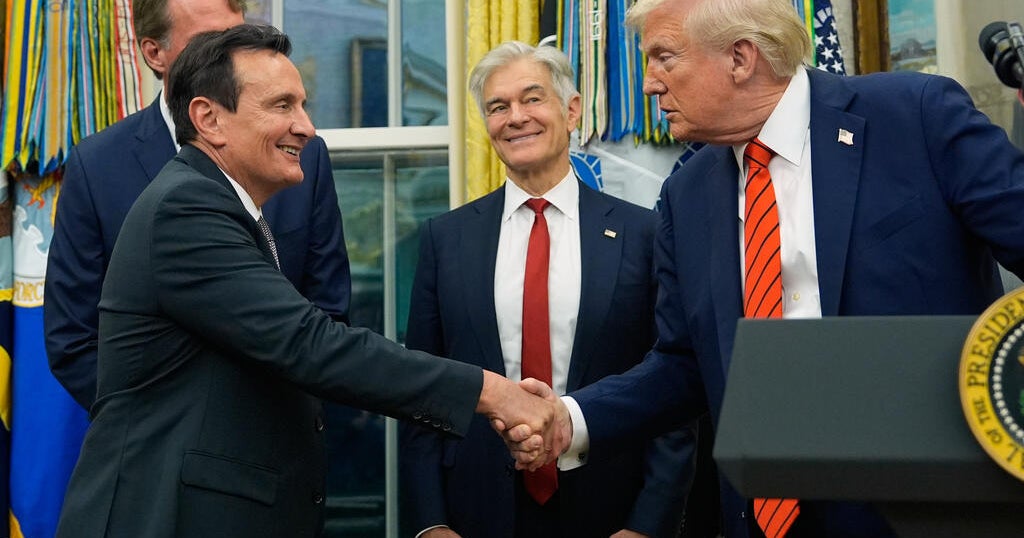Florida Medicaid Privatization Underway Statewide
MIAMI (CBSMiami/AP) — In a move to privatize the Medicaid program, at least three million recipients are transitioning to managed care.
The change comes three years after the Legislature voted to privatize the program, saying the roughly $23 billion a year bill was consuming the state budget.
Enrollment for the majority of Medicaid recipients, more than half of whom are children, started in Miami-Dade, Broward and Monroe counties Tuesday and has already completed in 54 of 67 counties. The long term care population, which includes those 65 and over who reside in nursing homes, recently completed enrollment.
State officials deliberately enrolled a few regions at a time to ensure better control. The website was built to handle far more than the intended capacity, the consumer's average wait time on the phone is about 10 minutes, and less than five percent of calls are dropped, said Florida's Medicaid director Justin Senior.
Health advocates have worried about lapses in care during the transition, especially because the program is built on a controversial five-county pilot where many insurance companies dropped out and patients struggled to access doctors and treatments.
Under the new agreements, insurance companies are required to honor appointments or treatments that were already scheduled under another insurance company even if the provider is out of network. The lists of provider networks are also closely monitored — a huge problem with the federal health law — and uncompliant insurers can face financial penalties or potentially lose their contract.
"We do not want to hear stories about someone being listed in network when they're not listed in network or not taking new patients," said Senior.
Other states have privatized their Medicaid program but the Sunshine State is one of the first to enroll the more vulnerable long-term care group. Experts say this was also the first time federal officials required certain oversight components, including requiring insurers to spend 85 percent on patients.
"On paper, I think this is one of the stronger agreements that we've seen with the federal government and I think that reflected the very high level of concern with Florida's Medicaid managed care," said Joan Alker, executive director of Georgetown University's Center for Children and Families.
Medicaid privatization has also been politically factious as federal health officials had to approve the state's request, a lengthy negotiation after the bungled pilot program. Some experts predicted that if the feds approved the program that Republican Gov. Rick Scott would support expanding Medicaid coverage to nearly 1 million additional Floridians under the Affordable Care Act. Scott backed expansion in 2013 but did little to promote the cause and the Legislature rejected it.
The statewide privatization, a victory for state Republicans, meant Florida had to convince federal health officials that mistakes from the pilot wouldn't be repeated. Federal officials said Florida needed to address quality-of-care and transparency issues and is requiring the state to report data that captures what services are being provided and denied.
Under Medicaid privatization, the state gives insurance companies a set amount of money each month (between $300 and $428 a month for a woman between 14 and 54-years-old) to care for a patient, giving the insurer broad authority to care for the patients, including which doctors they can see and what treatments can be prescribed.
The state says insurance companies were required to have a larger network of doctors, hospitals and providers compared to the number of consumers.
"The networks are broader than anything they've ever experienced in Medicaid before," Senior said.
Critics worry the state is abdicating care of its most vulnerable residents to for-profit companies with little oversight of how the money is being spent and say there's little evidence the pilot program improved patient care or saved money.
Insurance companies say they have an incentive to control costs by linking patients up with primary care doctors early on instead of treating them in more expensive setting like emergency rooms.
Fourteen insurance companies signed 5-year contracts to provide in the regular Medicaid program. Sunshine Health, Staywell and Prestige Health Choice have the largest presence statewide. Insurance companies say privatization is a long-term process, and while it requires significant investments initially, they'll ultimately save the state money in the long run.
"The first year is really about making sure the transition goes smoothly and the subsequent years focused on driving quality of care and savings," said Jason Delimitros, Sunshine's chief operating officer.
That means proactively assigning patients to primary care doctors and calling doctors to alert them to special health issues patients may have and potentially, even involving one of Sunshine's nurse case managers.
"There is the misconception that managed care is rationing of care but many of our services are not offered through fee-for-service models," said Rosy Cozad, chief executive of Amerigroup Florida.
(TM and © Copyright 2014 CBS Radio Inc. and its relevant subsidiaries. CBS RADIO and EYE Logo TM and Copyright 2014 CBS Broadcasting Inc. Used under license. All Rights Reserved. This material may not be published, broadcast, rewritten, or redistributed. The Associated Press contributed to this report.)
RELATED CONTENT:







